As an SEO veteran since 2009 and the founder of multiple 6-figures SEO businesses, including Diggity Marketing, LeadSpring, The Affiliate Lab, and The Search Initiative, I’ve encountered numerous SEO challenges.
One such challenge that’s been causing a stir in the industry is keyword cannibalization.
Despite the controversy surrounding it, I believe it’s crucial to address this issue as it can hinder your ranking success.
In this article, I’ll show you how to assess internal keyword cannibalization through tools that we use in our SEO agency, and most importantly, the three most effective ways to fix the problem.
Table Of Contents
Quick Summary
Keyword Cannibalization occurs when two or more pages on your website target the same keyword, appear for the same search queries, and consequently struggle to rank. This common SEO issue can hinder your pages from achieving their full ranking potential.
Various tools such as Agency Analytics, Ahrefs, SEMRush, SerpLab, and Google Search Console can be used to identify keyword cannibalization. These tools track keyword positions, provide historical data, and help spot keyword competition issues.
Addressing keyword cannibalization involves strategies like page de-optimization, page removal and 301 redirects, and the use of canonical tags. These methods help to clarify page relevance to search engines, consolidate similar content, and guide search engines to prioritize certain pages over others.
What Is Keyword Cannibalization?
Keyword Cannibalization is when two or more pages on your website have the same target keyword, appear for the same search queries, and as a result, have difficulty ranking.
Why did this topic become so popular?
If you optimize multiple pages for the same search query (intentionally or not), they will likely hurt each other’s chances to rank.
Why Is Keyword Cannibalism Bad For SEO?
Keyword cannibalism is bad for SEO because when multiple pages try to compete for the same keyword, they split up the power you’ve earned, and every single page becomes less visible on Google.

Your goal as an SEO is to make your site as visible as possible for your chosen keywords. If you have an X and a Y landing page fighting each other, for example, on page 2 of search results—instead of a single one that appears on page 1—you’ve messed up.
Fortunately, it’s not a problem that’s hard to fix. I’m going to show you ways of identifying diagnosing keyword cannibalization using several common tools.
How to Diagnose Keyword Cannibalization
1. Agency Analytics
To illustrate keyword cannibalization with an example, I set up an experiment to track an utterly random site that clearly exhibited keyword cannibalization issues for one keyword across multiple pages.
Agency Analytics is a keyword tracking tool that we use to track day-to-day Google positions of keywords across your core pages. When used correctly, it can be an option for a keyword cannibalization tool.
It’s also a great way to track relevant on-page health and (if used correctly) can diagnose a lot more cannibalization issues too.
Below, you’ll see a screenshot of the average overall Google positions over time for the entire website:

Since the start of tracking, the focus keywords we chose to track have continued to decline consistently, and on October 23rd, we can see a huge fluctuation. Could it be the result of keyword cannibalization? Let’s look deeper.
One of the great features of this tool is that we can track the progress of a specific keyword over time, not just a net combination of all the keywords. So, let’s dive into the broad term ‘acoustic.’
Since we began tracking this keyword, Google has selectively ranked a total of 3 multiple pages targeting the same keywords. There’s potentially a 4th page competing if we consider Bing choosing another page.
This is the first and easiest way to pick up keyword cannibalization—by monitoring one keyword daily and tracking the URL changes.
2. Ahrefs
Ahrefs is by far one of the most versatile and powerful digital marketing and SEO tools available – if you haven’t got a membership, then you should get one.
One of the great features of Ahrefs is its keyword explorer, giving you an option to audit your keywords versus your competitors.
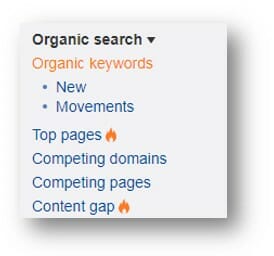 Yet, an often-overlooked feature is to the right:
Yet, an often-overlooked feature is to the right:
When you use the Organic Keywords feature on Ahrefs, you suddenly have access to historical data on all your keywords and instantly spot keyword competition issues.
I only have 6-months of historical data with my plan, so perhaps an upgrade is in order. *Cough* Tim Soulo?
Click on “Show History Chart” to drop down your ranking graph.
Each color on the graph represents a different URL’s rank in Google (as denoted by the legend in the lower left), so if you see more than one color, you’re cannibalized.
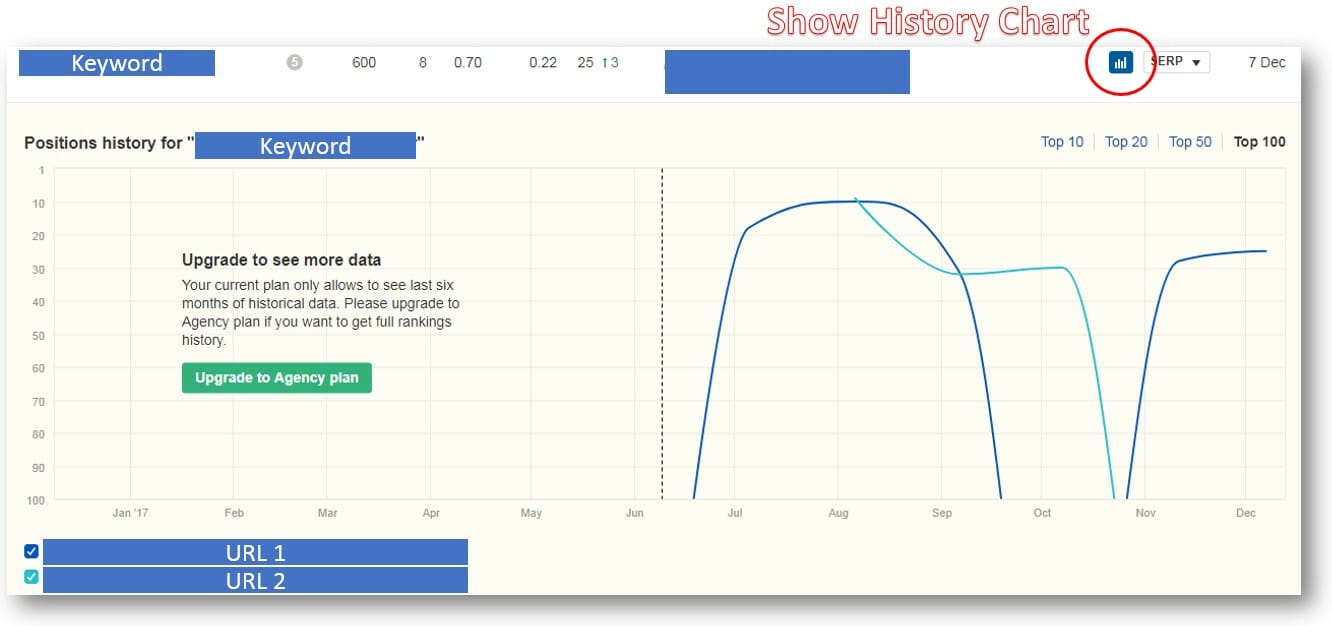
Notice how the keyword is constantly dropping out of the index, and there have been multiple pages ranking for this term?
That is keyword cannibalization and what it does to your keyword rankings.
3. SEMRush
One of my favorite SEP keyword cannibalization tools is SEMRush.
To do this, export a large chunk of your keywords, perhaps only including your core pages or keywords with high search volume.
You do that here:
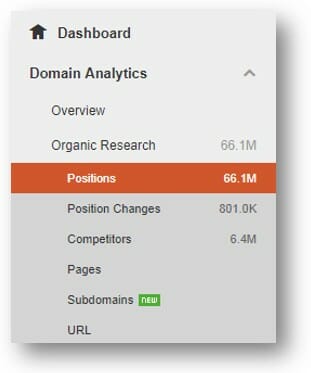
Take a sample of the top keywords with the highest search volumes, which will help you get a holistic view of your site.
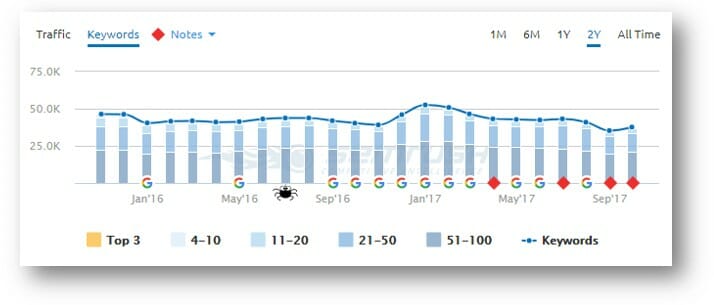
Throw all of these into a spreadsheet and set it up so that yours looks something like the one below, and if you’re having doubts, you can copy our template here.

Once you have set up your spreadsheet, you will want to sort these five columns by Keyword (column B) in alphabetical order. This will mean that any cannibalized keywords are next to each other and will have a different position and URL.
You can then scan from top to bottom to determine which keywords have multiple URLs competing. But you don’t want to waste time scanning, right?
If you use a little bit of spreadsheet magic and use the following formula:
=IF(B2=B3,”Cannibalized”,IF(B1=B2,”Cannibalized”,”Unique”))
If you use this formula correctly, you should easily duplicate the cell and turn Column A into a long list of automated checks – without the work.

This means you just checked 10,000+ keywords in less than 2 minutes.
Win.
4. SerpLab
Edit: Late suggestion from Prince Olalekan Akinyemi [thanks for the contribution].
SerpLab is one of the few SEO rank trackers out there with a freemium plan. One of the features of Serplab is that it tracks which actual URL of your pages in Google SERPs has the top rank, and as such, it is excellent for diagnosing keyword cannibalism.
To use Serplab for a cannibalism diagnosis of your pages, here are the steps to follow:
1. Log in to your Serplab account and select the project you want to diagnose
 2. On the page that opens, click on any of your keywords that have been experiencing wild fluctuations.
2. On the page that opens, click on any of your keywords that have been experiencing wild fluctuations.
3. Then Click on ‘’View Full Keyword Details’’ as shown below
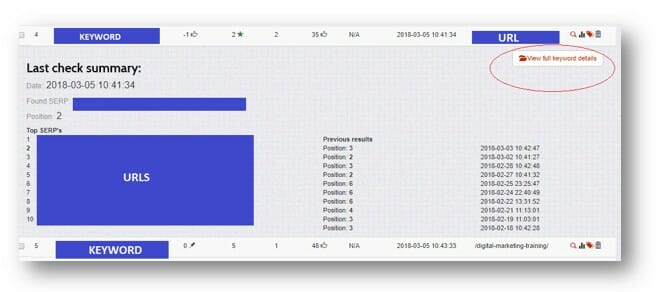
4. On the page, you will see a graph showing the SERP overview of the keyword in view. When you notice too many fluctuations time and time again (as shown in the image below), then your pages are probably cannibalized in Google.

5. Scroll down a bit to the bottom of the page, and you’ll see a list of URLs that have once ranked for that keyword and the positions they occupied. In my case, I discovered three different pages of my website that were trying to rank for the same keywords.
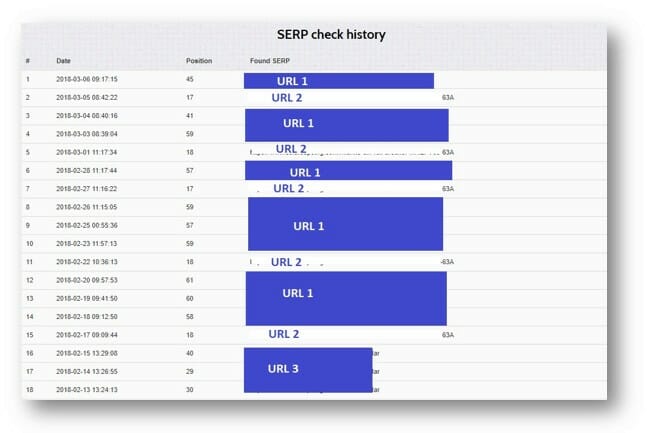
The only issue with this method is that it might be time-consuming as you have to go over each of your keywords one after the other.
Aside from that, you need to have been tracking your keywords for a considerable amount of time before you can use it to identify SEO keyword cannibalization.
5. Google Search Console (GSC)
Edit: Late suggestion from Joe Kizlauskas [thanks for the contribution].
For the most observant search engine junkies, you will notice that all four tools (Agency Analytics, Ahrefs, Semrush, SerpLab) are focused on the top 100 positions. They only report on detected cannibalization within these positions.
Using GSC (formerly Google Webmaster Tools) to diagnose this issue will give you access to the top 300 search positions
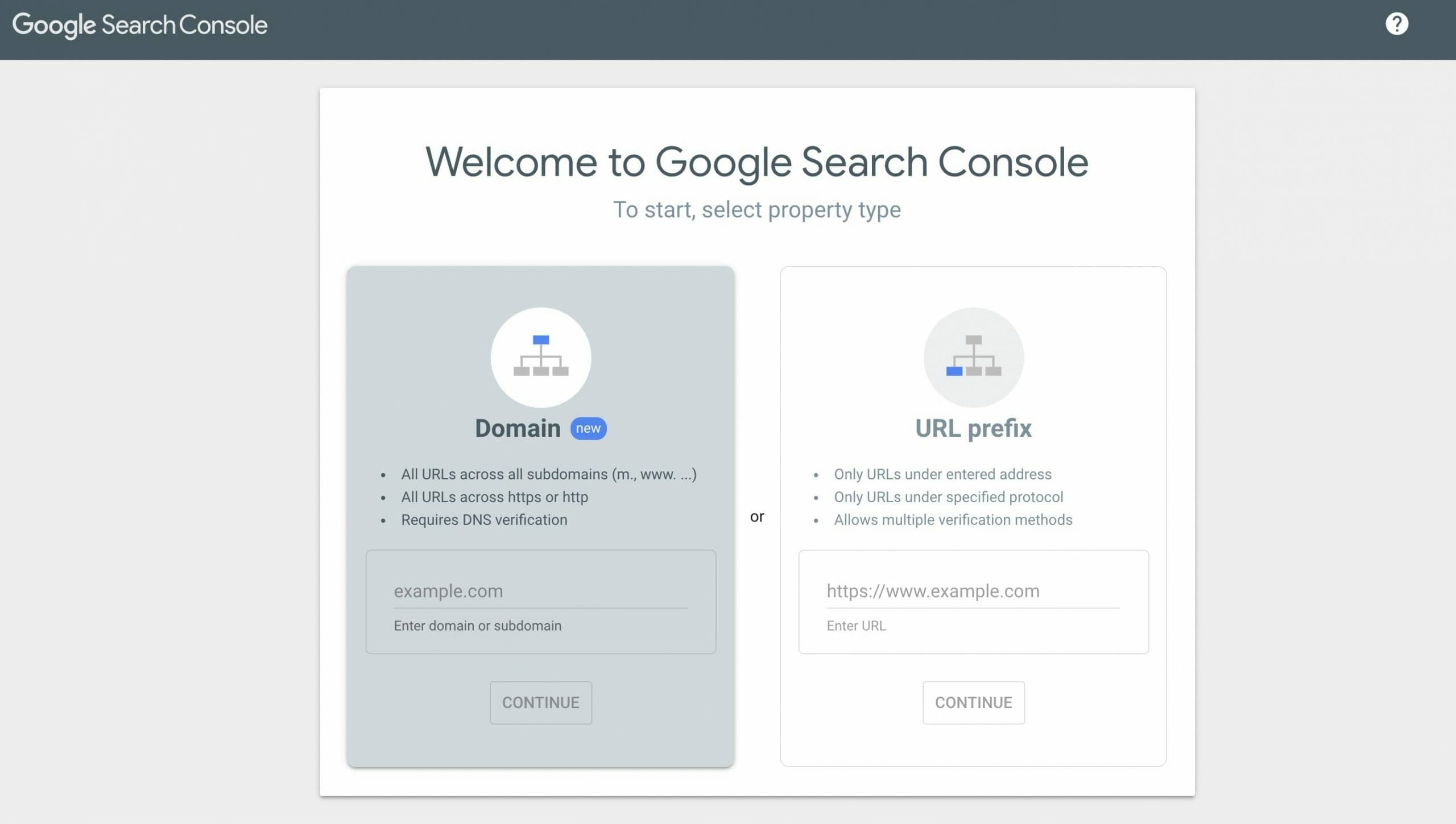
GSC provides a far larger data set to work with than most SEO tools. It’s also based on all queries that your pages are returned for within Google’s search results, so you aren’t likely to miss anything.
Plus, it’s free.
Here’s how you get started:
1) Login at https://www.google.com/webmasters
2) Choose your website from the right-hand side
3) Select the options below:
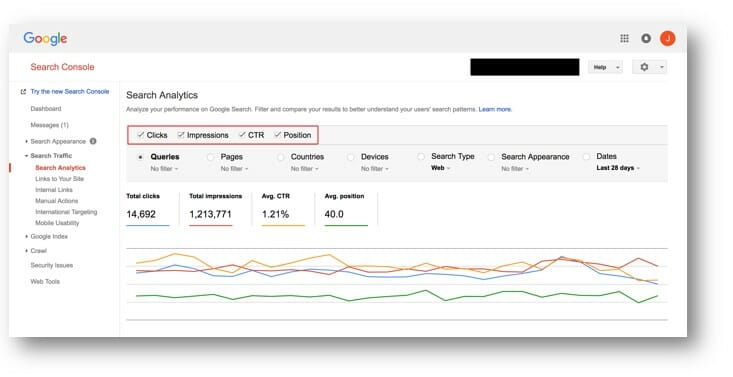
4) Filter by keyword to narrow down the search results:
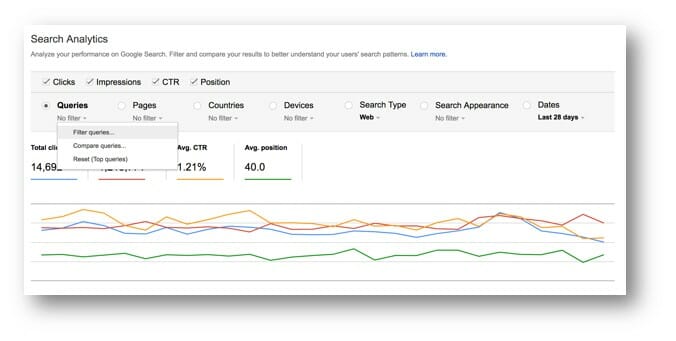
5) Enter your keyword as an exact match:
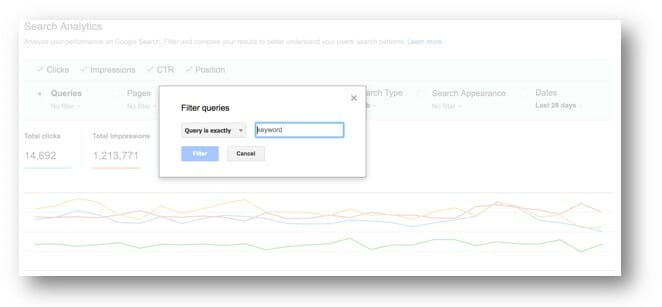 6) View the Pages that are being returned for the filtered keyword:
6) View the Pages that are being returned for the filtered keyword: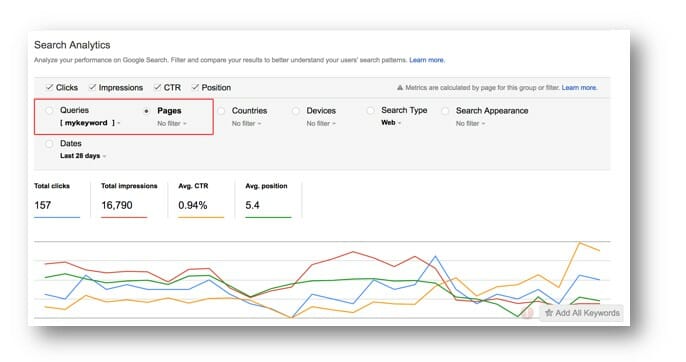 7) Scroll down and you can see all of the pages that rank for this keyword
7) Scroll down and you can see all of the pages that rank for this keyword
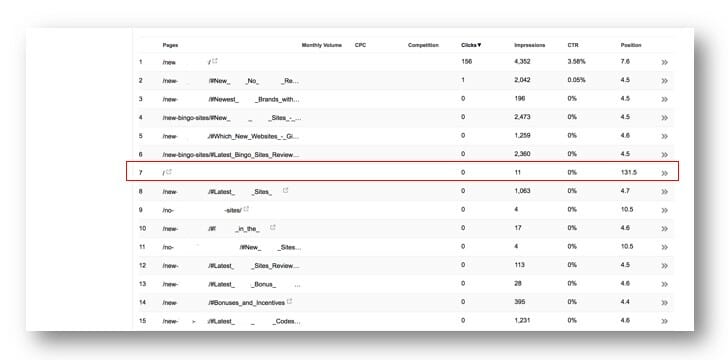
You’ll see that the one I’ve highlighted in red is indeed outside the top 100.
6. Google Search Operators
For proactive SEO, there’s a sixth technique that can also reach outside the top 100 positions.
It takes time, but you have an option to check the entire Google index to find duplicate pages by using Google site operators. Using search operators, you can track down multiple pages that have any content issues like duplicate content.
For example, take a look at some keyword duplication on Diggity Marketing. Here are some duplicate keywords on my own site:

If I wanted to rank for “pbn link,” I have 17 pages that all include this term. I can cross-reference this with AHREFS and see that this is indeed one page that has been cannibalizing in Google.
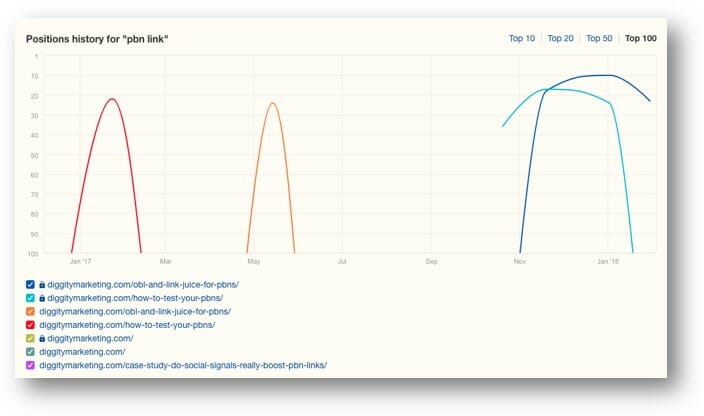
So if I wanted to reduce cannibalization here, I could use the information from this site search to deoptimize pages ranking for exact match keywords.
It’s time-consuming, but Google uses algorithms similar to TF-IDF to understand relevance. If the term shows up more frequently elsewhere on your website, it could contribute to keyword cannibalization.
The downside to this technique is that it will only work for medium to long-tail keywords. Therefore broad terms, such as “pbn link,” that naturally show up quite often throughout a website can’t really be de-optimized.
However, this is still a great trick to use if you get stuck for ideas on reducing keyword cannibalization of pages.
At this point, I am guessing you want to know how to fix this, right?
How to Fix Keyword Cannibalization
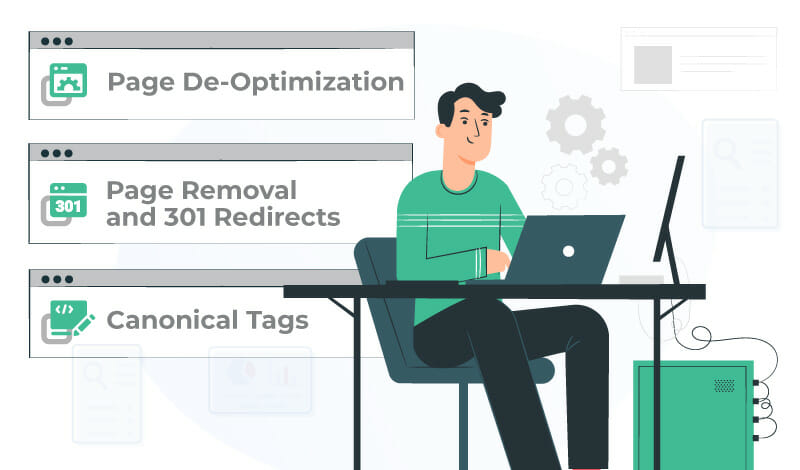
Now that you’ve learned how to diagnose the issue, I’m guessing that you’re heading off to diagnose all of your sites and web pages that could potentially be having this issue.
But hold up!
I need to first start with the fact that:
When you see multiple blog posts or landing pages targeting the same term, all appear on the first page—that’s not SEO cannibalization. It’s actually good and likely to increase your chance of getting clicks.
The issue with keyword cannibalization is when it stops you from getting onto the first page, so you need to consider whether you’re really stuck because of it or not.
For those of you that are struggling with keyword cannibalization holding you back from rankings, here’s how to fix it.
Page De-Optimization
One of the most common ways that people cause cannibalization is by creating duplicate content or similar content on their site. I talk about this over-and-over again in The Affiliate Lab.
As with other search engines, Google is primarily a web crawler that travels through the interwebs through links. It wants to understand the information on your page. When two relevant pieces have duplicate content, it gets confused.
On top of that, Google wants to prevent naughty SEOs like you and me from taking over every page 1 search engine result by copying the most successful content to multiple URLs.
The easy solution for this problem is to check all of your SEO title tags in your preferred search engine optimization plugin. Then, address any examples you find of similar pieces of content or pages that have the same target keyword.
We’ve seen a number of clients join The Search Initiative and target one location or keyword across their entire site, or even just in sections of their site.
Since SEO titles are one of the most important ways to convey content relevancy, it would make sense that the first place you should check is here.
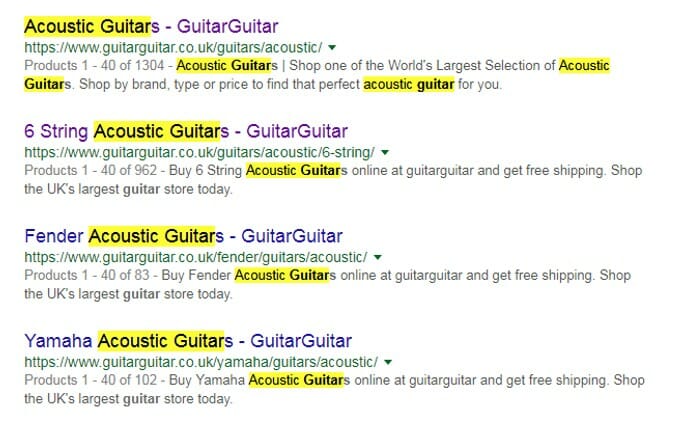
Afterward, go through your heading tags (especially H1’s) and keyword density to make sure that you’ve sculpted one page that is truly unique in content and headings.
But is that all?
Guess what? Links and anchor text also shape the topic of a page.
Let’s pretend you have two landing pages targeting similar but distinct topics. One page targets “Acoustic Guitars,” while the other targets “6 String Acoustic Guitars”.
These two product pages clearly deal with something different, but it would be easy to get caught in a situation where they’re targeting the same keyword. If that happens, all the juice might go to the wrong page.
One easy mistake to make is sending too many links (internal or external) using the “acoustic guitars” anchor to the “6 String Acoustic Guitar” page.
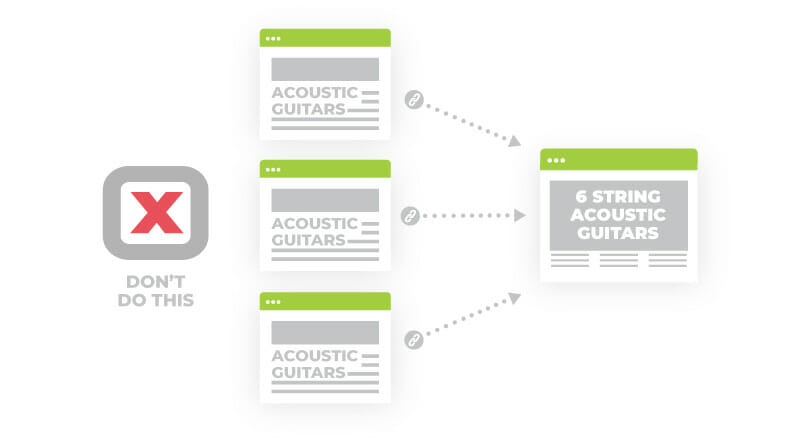
The anchor of these links tells Google that you want the 6-string page to rank for “acoustic guitar” as well.
Instead, do more content marketing. Build more links that target variations of the longtail keyword, such as “6 string acoustic guitars” and “acoustic guitars that are 6-strings”.
Do this while avoiding or removing the links and anchor text targeted at the broad term.
And make sure to have a hard look at your internal links and their anchor text. If you’re sending any number of internal links with target anchors to the wrong page, you’re setting yourself up for a ranking disaster.
Page Removal and 301 Redirects
After de-optimizing one page’s content as best you can, then you may wish to ask yourself if the duplicate product pages actually address the same concept.
Topical relevance is a thing that search engines are looking for. If multiple site pages are typically similar, you may wish to remove some pages targeting the same keyword.
This simple step means that you no longer have a 404 page floating around, and all your internal link juice flows naturally.
If the content is good on the page you redirected, consider taking that content and adding it to the page that is receiving the redirect.

For example, let’s say you have a page “Best Laptops of 2024”. Now imagine that this page is currently cannibalizing a page with the content: “Best Laptops of 2024 under $1000”.
You can fix keyword cannibalization with a simple surgical maneuver.
Take the content from the “under $1000” page and add it as a subsection of the “Best Laptops of 2024” page. Now, you no longer have multiple product pages, but you can still rank for the terms related to the discount on your main page.
Just make sure to modify the injected content, so you don’t alienate your audience and harm your conversion rates.
Merely removing the page from your site isn’t enough. You also don’t want the redirected pages so remove them using the URL Removal Tool to quickly clean up the index.
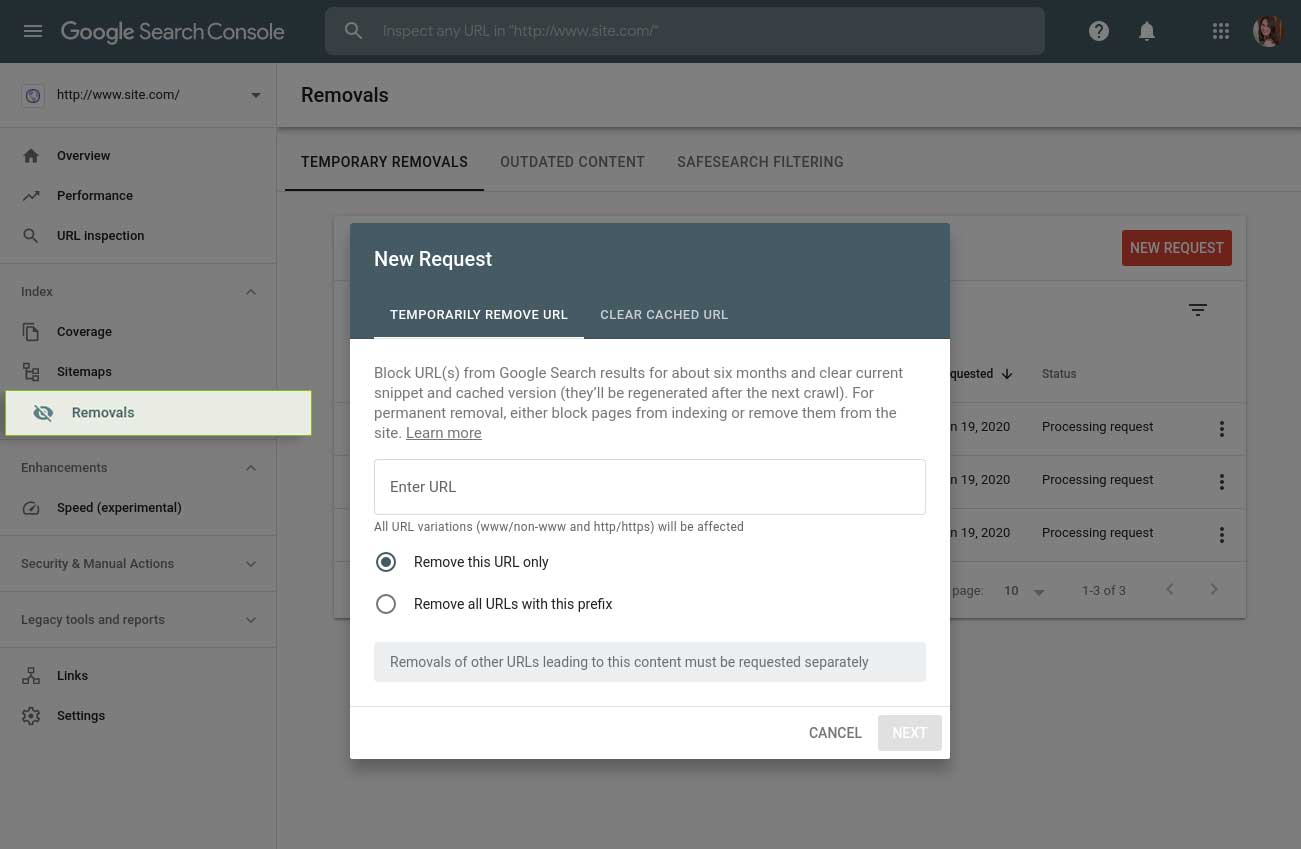
301s can be quite drastic of a change for a website’s architecture. Sometimes they work, sometimes they don’t, and they usually shake things up for a bit before they settle down again.
Why?
Remember—with 301 redirects (and canonicals, for that matter)—the receiving page inherits the links and anchors of the sending page.
This is why I always recommend starting with page content de-optimization.
But when they work, they work.
And it’s nice because the juice from your old page’s links carries over to the new page.
Here’s one example of a member of The Affiliate Lab using 301 redirects to solve keyword cannibalization:
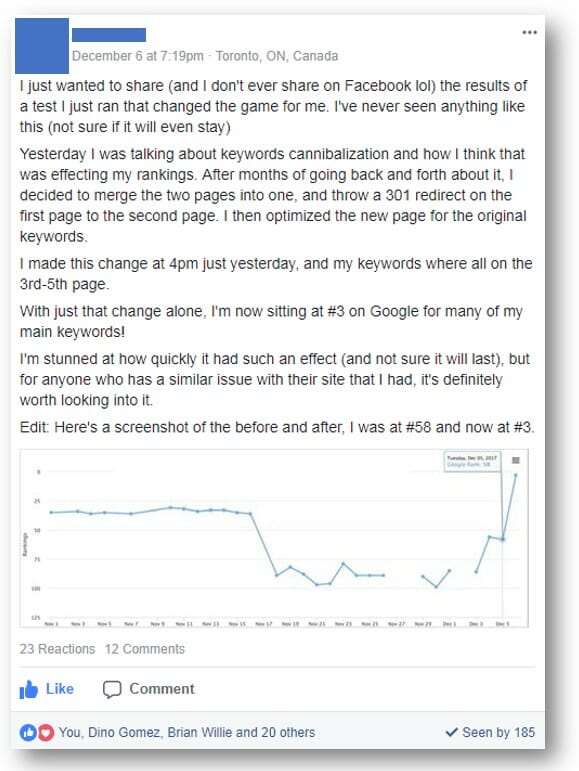
Canonical Tags
Canonical tags are often misunderstood with noindex tags, and so people are scared to use them on their site. However, when used properly, a canonical tag can be a great way of reducing keyword cannibalization issues.
Let’s take two similar money pages on your affiliate site competing for a broad term, just as one example of cannibalization.
By creating a canonical tag from your less-important page to the other, you’re telling Google that while some content duplication and similarity exist between the two, the more important page is the one you selected.
So rank that one, instead.
Where keyword cannibalization occurs in some areas of the two or more different pages’ content, canonical tags will show preference to the money page of your choice.
Here are the results we gained from this:
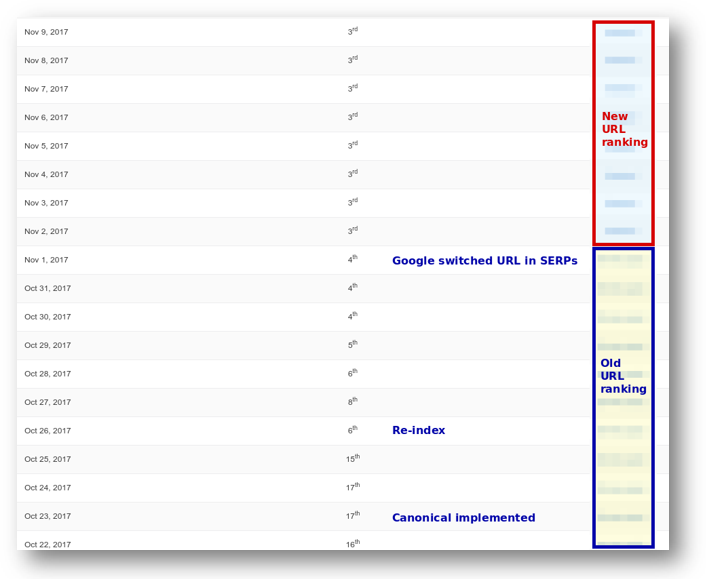
Keyword Cannibalization and Online Shops
Now, if you own an online store, you may be concerned about the amount of similar-sounding keyword-stuffed product pages. It makes it logical for online stores to have separate pages for similar items.
Needless to say, site architecture should be given a lot of consideration. Every product page should include a link that leads back to the category page, which is the page you should focus on optimizing for search engine rankings.
And remember to remove and redirect any outdated product pages that might harm your site’s current rankings — the redirect manager in Yoast SEO Premium could make this process much simpler.
FAQs
How Do I Fix Keyword Cannibalization?
You can fix keyword cannibalization by first, identifying keyword cannibalization, then deoptimizing, removing, or redirecting the less important pages. You can also use canonical tags to indicate to search engines which page should be considered the “main” one when multiple pages have similar content.
Is Keyword Cannibalization Bad or Good?
Keyword cannibalization is considered bad because when you have 2 pages targeting the same keyword, you’re basically competing against yourself on the search results, and Google might end up ranking the less important page over the main one.
Ready to Attack Keyword Cannibalization?
As promised, in this blog post, we answered the question ‘what is keyword cannibalization,’ reviewed five great ways of identifying keyword cannibalization issues with your site, and gave you three great ways to fix them.
The important thing is to identify the problem, determine if it is harmful, find the culprit, and then create an appropriate action plan.
Now it’s on you to use this information and put a plan in place to fix your content so you can recover your Google rankings and ultimately conversion rate.
Not every cannibalization issue is caused by the same problem, and not every website will benefit from the same solution – it’s best to consult with an expert if you’re uncertain.
You know where to find us: The Search Initiative.


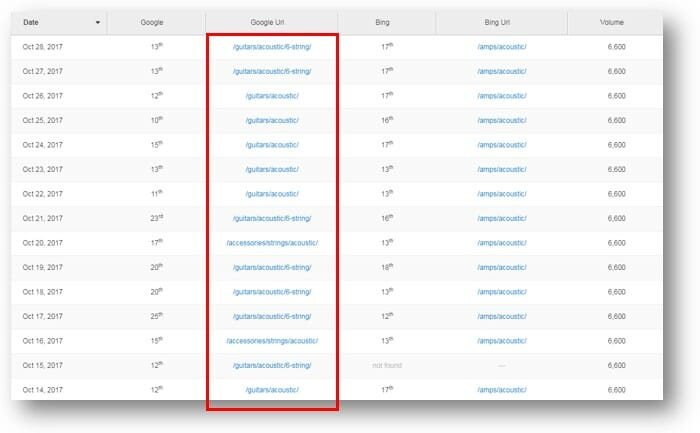
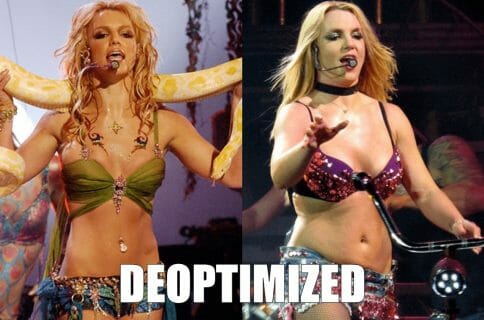

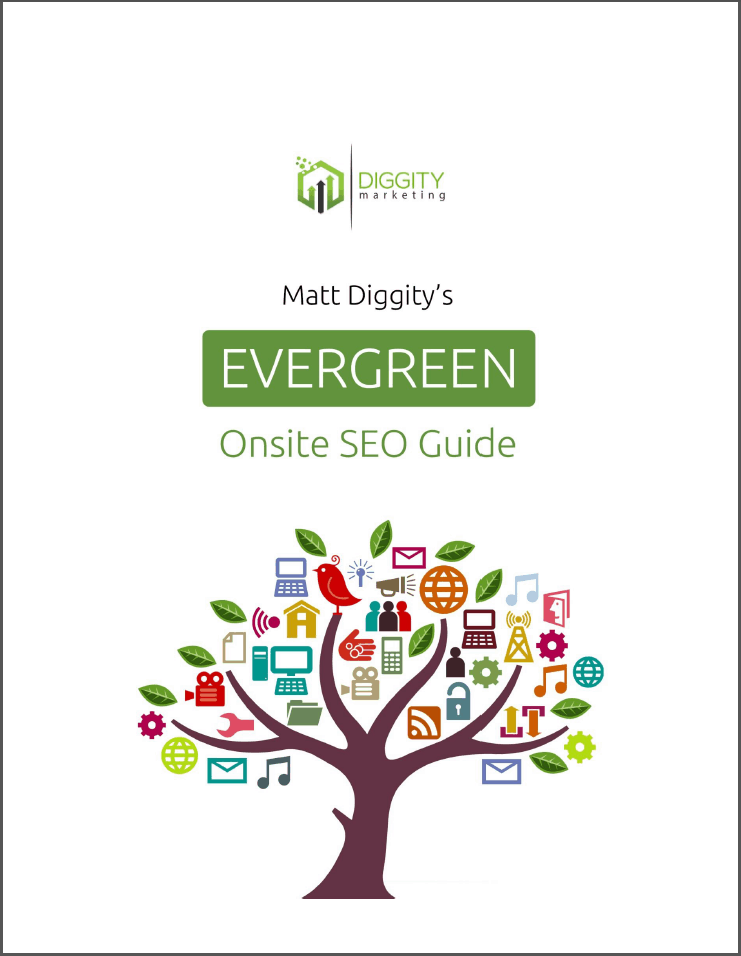
One of my site is suffering from the same situations that you have written in this post, I will try implementing your suggested solutions on my site and will get back to you with its outcome. 🙂
Thanks
Please do.
Disappointed you didn’t dress up as a cannibal in the thumbnail. ^.^
Very relevant article for me right now, currently working on this for a few sites. Another method I’ve been using with success is to deoptimize the page AND then link out to the page I want to rank with its exact match anchor text.
Let us know how it goes.
I have several sites where this happens and have found simply deoptimising the page I don’t want to rank for the keyword/keywords does the trick, to speed up the process I do a simple fetch as google or google mobile friendly check then click the submit to index button. Great Read Matt as always 😉
Nice. And thanks.
I’ve been using Google Webmaster Tools and Google Search, but I’m not sure if this is a good free method too.
With GWM I check on pages that rank for a specific query under Search Analytics. With Google Search, I use the search string ” site:” and consider that resulting pages as those that are competing for the same keyword (with the topmost as the one ranking on the 1st position).
Would you consider data gathered from GWM and Google Search above reliable as well?
Absolutely. Thanks for the tip.
Hi Matt,
Nice article. I’ve got the same issue on 1 term alone. Like the terms are (for example): XYZ protein bar & XYZ protein bar set…
I’ve got 2 separate pages targetting them cause 1 half of my brain feels like they mean different things. The other not really. My competition seems to be doing alright with separate articles.
Would you recommend 301ing the 2nd onto the 1st or vice versa in this scenario?
The 1st article seems to be doing well on its own for many others terms so I am not sure how to go about it.
I’ve tried de-optimizing it and so far google’s a tad more confused than I am. Been hopping from page 2 to 100 every back to 2 every couple of days.
Cheers
Shree
Hey man… without looking at your page, it would be an injustice for me to pretend to make the right decision for you.
I gave you the tools, now its up to you to figure out how to apply them. That’s what learning is all about. 🙂
Fair point 🙂 thanks! I’ll try the 301 and let you know how it goes. Cheers!
Well, I was looking for this solution and you wrote it at the right time and published. Thanks for your bro 🙂
Glad to help.
Hey Matt,
so yeah – I’ve been waiting for this article for some time, thrilled that it’s out and I can finally troubleshoot – so really, thanks a bunch for this! I had been doing something similar, but the history graphs and URLs make it very freaking simple – thank you 🙂
As I’ve been suspecting, I’ve been hitting a number of keyword cannibalization issues.
Let me explain the situation.
I’m targetting popular product X with a review. The page is ranking but is being also cannibalized by my Product X vs Product Y review.
Given the better user buying intent with the latter page, I don’t want to deoptimize it significantly, because I still want that mofo to rank (it delivers a bunch of conversions).
Yet, I still want to rank for the product X review … so in terms of deoptimization, should I drop any mentions of “Product X Review” (especially in headings) from Product X vs Product Y review page.
I would have thought, cross-linking the pages would work best, with a heading which targets the keyword to rank just before the link.
To clarify what I’m doing right now, in the Product X vs Product Y Review page, is the following a bad idea?
[content for comparison review]
(towards concluding paragraphs)…
[H2]Product X Review[/H2]
If you’re also looking for a [link]Product X review – click here[/link] rest of paragraph…
Do I need to fix that asap and try to remove any ranking keywords from the product X vs product y page?
Try replacing “Product x” in the comparison article with some synonym of it. It’s worked for me before.
Matt,
How you getting SEMRUSH to show the history of the keyword/pages that have ranked for it? When I export the positions it isn’t showing me this (perhaps I am looking at a site that doesn’t suffer from this and that is why).
Regards
K
Good article Matt. I run into this all the time and the way to find out is ranking software for an Enterprise client obviously but are we talking a smaller self built affiliate site you should never let this happen. 1 key word 1 page. If it does happen. Let’s say you have a page with a few dynamic content elements the canonical tag comes in handy and is what should be used if you need to show a travel booking part on a page for example but much of the page is static. If you consider 301s you might ask yourself what the hell that content is doing there in the first place but rather 1 bird on page one than 10 birds on 20+ . By using canonical tags and or 301 you are not wasting any hard earned link juice showing it all over the place. When it becomes interesting is when the pages rank for not just the same word but other traffic driving terms. In these cases I would create new pages, Lift out what’s unique and create new pages and then 301 the old page to your best ranking keyword 1 page. Hope that makes sense lol
Absolutely. Thanks for your contribution.
Great article as always Matt!
In the case of having two pages fighting with one another for the same term I often prefer the approach of merging the two pages (if they are both quality articles but don’t justify having their own pages) rather than deleting one but, of course, it depends on the situation.
Keep up the great work.
That’s always a solid move. Did that one last week.
Hi Matt,
Thanks for sharing this wonderful insight!
One of my sites is also having Keyword Cannibalization issue. My One of my page (A) is ranking on 8th position, although I haven’t optimized the content for that particular keyword. For targeted keywords, it is ranking in Top position.
Due to the canalization, The main page (B) which I want to rank, is now nowhere in the search result.I have linked that page (A) to page (B) with targeted keywords but I haven’t received any benefit. What will be the best solution to overcome this?
Regards
Vipin Joshi
Hey bro… you got to read the guide and make the best decision for your unique situation.
Great Article! Want to check if this thing can happen for multiple keywords targeting a single page?
For example i have “best mattress” post but i am also trying to rank for “comfortable mattress” and “mattress reviews”. I have noticed that when the inbound links are with anchor text “comfortable mattress” my “best mattress” rankings go down :(. Is it cannibalization of KW or maybe penguin?
A page can’t cannibalize with itself.
We’ve seen a few clients (before they were clients) suffer from keyword cannibalization. Just a few tweaks and they are back.
Thats the (only) good thing about it.
Hey Matt,
Having silo structure & pointing internal links to the right term, do they help to avoid keyword cannibalization.
Example:
/iphonex – want to rank for iphonex term
/iphonex/specification – want to rank for iphonex specification term & interlinking to /iphonex page
/iphonex/battery – want to rank for iphonex battery term & interlinking to /iphonex page
Internal link anchors help. Directory structure, not so much.
Matt, you’re a fucking crack …
I’m having a keyword cannibalization problem that I have trouble solving.
Example: article “best computers on the market” (1st article) cannibalized with “best computer for games” (2nd article) ….
I already link the first article to the second with anchor text “computer for games” and the 2nd article to the 1st with anchor text “best computers on the market” …
I can not delete the second page because it touches another topic that is only computers for games and is positioned in the first place …
How do I fix it ???
When I write the keyword “best computers” are the 2 items one below the other between the last positions of the first page and second (it has been bouncing in that way for a long time and I do not know how to solve it without redirecting 301 …
I’m from Argentina, thank you very much for your help!
Look at what keywords you can take out of each page that will not cause too much suffering for them. Also, you can help scupt with external links.
Awesome read mate! I’ve just gotten into client SEO. I have a client who is on page one for his main keyword after I fixed his on page. Jumped from page 3/4.
The rest of his site is has lots of replicated pages for all the services. Eg it’s all one kind of service with different headings.
I’m inclined to think this is ok as got him to page one. But now I’m thinking that these extra pages need to be fixed up as you dropped that example of the guy in The Lab hitting #3.
Would you deoptimise the other pages so the main page that ranks is the only page fully focused on the main keyword?
I don’t want to 301 the other pages as they are all services related to what he does. Or would it be better to make a combo page with all his services instead of each once being it’s own?
I hate to give advice like this without looking at the website, but it sounds like cannonical is the best. You want the other pages to still be accessible.
Thanks mate! Will give it a shot and see how it goes.
Matt,
After reading this blog. Your top 10 client issues post. The on-page guide. And a few other things. Plus with my own testing these things works…
It seems like getting really good at technical seo and in depth analysis is where it’s at.
If you can master that craft instead of being the guy who just fires links at everything you will come out on top.
Is that somewhat right?
But not to say that links don’t play a role. I’m saying master the other elements and you will win. Right?
SEO is holistic these days. It takes link building, CRO, design, content, tech… etc.
They all have their part.
That Brittney Spears pic.. literally had me cracking up! hahah
LOL.
I think this would happen with typical niche sites which is based on one product , but when you plan for big why you will write on one topic over and over again .
You might think you’re writing a new page but Google doesn’t think so.
Example:
Keyword “Product ABC Review”
Page 1: “Product ABC Review”
Page 2: “Product ABC vs XYZ Review”
Google might think the above compete. It’s really up to them to decide it and then you to fix it if they do.
Thanks, matt i noticed that problem but i didn’t know it has a name, let alone it’s a phenomenal, LoL!.
i have another question, is it possible for a page to be penalized by google, not a website , just one particular page, this page used to be authoritative in the past.
Yes, that is absolutely possible. Especially more common since Penguin 4.
Okye, thank you !
What if search engines get it wrong and they demote your pages because they don’t understand the difference between them?
In theory, manipulating the anchor text, off page, should clarify for them what the subject is and how the two, three, or four pages are different. Am I wrong?
You’re absolutely right. Anchor text can help “sculpt” a page. It’s just minor in the grand scheme compared to onsite changes, hence why I didn’t list it.
Thanks Matt, great article. I see this problem a fair bit and for me it’s 1. the home page competing with inner page(s) that can cause the issue and 2. on silo’d sites where the category keyword is on every page of the silo i.e. domain/category-keyword/sub-category-1 etc
My solution for 1. would be de-optimizing the home page and 2. remove the silo structure and have all URLs hang off the domain i.e. domain/sub-category-pages
My question to you, is my solution for 2. the way to go in your opinion? The site in question has 4 pages competing for the same keyword (according to ahrefs.com)
Again, thanks for an awesome post.
Hey brother. Like I said in some above comments, I can’t make a call without looking at the site. I could make some suggestions for you right now that sound awesome, but could potentially deoptimize for keywords that I don’t know about.
Matt does it again. Bawse!
Thanks.
Hi
Hoping you can help with:
1) Finally, have you tested by linking from the one page to the other and building more links to the one you want to actually rank as a solution? (E.g. adding a link to /reviews/acoustic-guitars/ that links to /guides/best-acoustic-guitars/) Does this work?
2) Do you prefer canonicalisation or simply removing and redirecting as a solution?
1) Yes, indeed it does.
2) Canonical when possible.
Hey Matt, thanks for the article
Doing the “keyword” then site: the page I want to rank for that term is at the top. obviously, I still get other pages show up as the menu on the other pages has that term.
If we’re tracking the keyword and no other URL pop-ups, then can we say that cano isn’t an issue?
That’s correct.
Hey Matt,
So, here’s an unusual one that normally isn’t covered by anything you read on cannibalization…
Say you have location pages focused on an offering (e.g. ‘Service’ in London). You then have specific location pages/offices within that city which all have their own GMB listings. However, very often, those office pages are cannibalizing the city pages (e.g. ‘Leeds’ city page and ‘Leeds Train Station’ office).
Options I see are:
1) Try canonicals from offices to cities and hope local pack rankings don’t drop for offices (obviously test first)
2) Deoptimise office pages and hope their local pack rankings hold
Be interesting to get your opinion. Thanks.
I’d try #2 first then opt for #1.
Great article, Matt, thanks! What about a multi-location business that performs the identical services in all locations thereby having dupe content and possible cannibalization (auto repair, restaurant chain, etc.). Each location has a page but the description of services is basically the same. The only differentiation in keywords is the addition of a location i.e.) auto repair austin, auto repair tulsa? I find in some cases the homepage outranks the local page which appears to be cannibalization. Not sure what can be done…
Location differences are absolutely enough to establish a new topic. You will not have any cannibalization issues if you’re pages are targeting different locations.
I’m having trouble indexing a money page. I used SEOIndexer.com to Index the page, which worked, but it dropped from Google’s Index days later. I did it again and it worked, but dropped, then it finally seems to stay.
During the whole process, I send a couple of Diggity Links to start the “backlink blueprint”, however I don’t think it took effect because of the dropping of the index.
What do you suggest to get my money page to index naturally? The article has 3500 words. On-Page is good. So many other factors though.
Cheers,
Aaron
Hey Aaron… many people are reporting indexing difficulties right now. I suppose this is eventually going to roll back on its own. For your particular issue, the Diggity Links should index it soon anyways.
Hi, Matt.
Please help me out.
I have a niche site. I published articles on best … set 2018 in my site.There are 10 products reviews on that site. Now I want to publish another article with the title’ best ……set under 100 dollar’. I found 2 similar products under both titles.
Here are some questions regarding this matter-
-Can I use same review content for those products?
-Should I write new content?
Write new content.
Hey, Matt. I aslo want to offer one more step for de-optimisation. It would be greate to add additional internal backlink from content of no-priority page (which is in canibalization chain) to priority page. What do you think about it?
Thank you in advance!
Solid tactic.
Thanks for fast response, Matt. I’ll wait next posts 🙂 Good luck.
Hey Matt. Great article but I have a question which maybe relevant for quite a few people.
Say I have a website about security cameras and the homepage consists of a long article containing a “top 10” list and a general buyers guide.
The homepage is ranking for lots of KW’s including things like “night vision security camera reviews” or “best bullet camera reviews” even though that’s not what the article is targeting.
Would you make a new post specifically targeting these keywords and link to them form the homepage?
I’ve been frightened to do this encase the homepage loses its ranking due to canabilization.
I’d love your input.
Thanks Adam
I wish I could give you advice on this but cannibalization is so sensitive lately. You could easily end up causing an issue. Unfortunately the only thing you can do is try and see.
Awesome post as always! I just have one doubt: You said “Each color on the graph represents a different URL ranking so if you see more than one color, you’re cannibalized.” (with reference to the historical graph of the keywords) But when I check for my keyword, all the URLs belong to different competitors. I think its perfectly natural. How can it mean cannibalization? Am I missing something?
You’re supposed to be only analyzing your domain as you can only cannibalize with yourself.
I’ve been using Serplab for about 2 years and did not know about that little trick, time to do some digging!
Great post! I am troubled in the past few months about the consistent drop of rankings of my websites, now I think I have some clues about where to start. Now I have a question, do you think noindex tag will work the same way as canonical tag, suppose the pages do not receive any links? The reason I ask is because sometime google ignores canonical tags if it finds the 2 pages are not similar. If that is the case, the page with canonical tag is still indexed by google as a unique page and thus still canibalizing the money page. Thank you.
To be honest, I don’t know for sure as I haven’t tested it. With canonical, you’re still getting some effects such as topical relevance links to other pages. I think its a bit more complicated than your assumptions, but as for the effect of curing cannibalization issues, you might be onto something with noindex giving the same effect.
Canonical Tags are not the same as NoIndex Tags, and so I wouldn’t compare them. If you’re having consistent drops then it might be worth reaching out to a specialist or agency that can help you.
Rowan:
Thank you for your reply, and also thank Matt for the insights. I am 100% sure that my website is suffering from keyword cannibalization issues. My website is an ecommerce site, and has only 5 main categories and for each main categories it contains more than 40 subcategories such as “red shoes”, “blue shoes”,”flat shoes”,”high heel shoes”. Before, they all ranked well, but since the beginning of 2017, they started to drop slowly and consistently, no matter how much fresh contents, pictures, links we have thrown on the pages.
I know Canonical tags are different than “noindex, nofollow” (maybe more close to “noindex,follow” though), but we have seen many times that the canonical pages are still being indexed by google, unless we make the 2 pages very similar (same title, description and text in body). In such cases, I am wondering if the page is still cannibalizing the money page. However, I think Matt provides a very good solution by de-optimizing the page in addition to putting the canonical tag. So we applied that technique in the weekend. I will report if it works.
I am seeing some promising results by putting canonical tags alone though. One keyword that has been stucking on 6th+ page for a month has just bounced back to where it was just 2 days after I put canonical tags on the sub-category pages.
This is actually happening with a YouTube video on my site’s channel. My site was on page #1 for the keyword – then it switched. Now it’s page #2 for the video and page #3 for organic. The video is embedded on the page. Thoughts?
That’s a new one for me.
For me the key word is crucial to the SEO business. After I put that in mind, my business took off. Use Sem Rush and Ahrefs to search for low-key keywords.
Excellent post Matt, Is there a plugin to add Canonical tags or should I do it via Yoast, etc?
Yoast is fine.
I’m very familiar with cannibalization and addressing it, but one issue I’ve been having with it recently is that Google seems to prefer homepages, rather than subdirectories or other deep pages, for certain queries. I’ve found it most often occurs with queries that include acronyms, for whatever reason. Acronyms are huge in our niche, so it’s heavily affecting our rankings.
For whatever reason even when I’ve done on-page optimization and added some internal links with said acronym, Google will still serve up our homepage rather than the page that has the acronym RIGHT THERE in the dang title tag. It’s driving me insane.
Another issue compounding this is that our site runs on a asp.net-based CMS, so it’s ridiculously time consuming to add or update internal links, which (i’ve found) are a huge factor in combating cannibalization.
It’s pretty much driving me insane and Google needs to fix it on their end, IMO. It shoudn’t take hours of additional optimization just to get your “NASA” page to show up for “NASA” rather than your homepage. Makes zero sense imo.
Agreed. It’s a thorn in our sides. It’s almost like the best skill to have in SEO for 2018 is keyword cannibalization debugging.
If you had to pick only one of the tools to diagnose keyword cannibalization which one would you pick? Best bang for the buck
Ahrefs. It’s quick and easy.
What do you suggest if one of the cannibalizing pages ranks for similar but it’s own set of keywords as the page you mainly want to rank? If I deoptimize it then it won’t rank for it’s keywords.
Would a solution be to move the content from the cannibalizing page to the main ranking page under a heading tag…….and then 301 the cannibalizing page to the main page?
That’s usually the case. You have to figure out how to deoptimize the offending page while not hurting its own rankings. Takes finesse.
Otherwise, do what you said and combine articles and 301.
Hey Matt,
First of all thank you so much for such an insightful document! Just had one question, maybe if I am lucky you’ll see it. What if my PMD does not have synonyms? So then how would i make sure that certain keywords are not used twice, for example:
mypizzastone.com If i try to rank for lets say, pizza recipe,
the word pizza would come back twice in the URL, and pizza does not really have synonyms, so what would I do in such a case?
You’re stuck with the URL, but just making sure you’re not also overoptimizing in SEO title, H1, content, etc.
Hi Matt,
I am just starting out and your guides have been great, quick question you say 500 words I should keep the individual words of my target keyword each under 15, so should I just apply double the concept for 1000 words and keep the individual words under 30? And so on for 4000 word articles? Etc, thank you In advance
Yeah… thats the blanket approach to keyword density. I’m looking at TF*IDF now.
<<When you see two pages competing for the same term but both on the first page – that’s actually good and going to increase your chance of getting clicks.
But when two pages are competing for the same term on the 2nd page of the SERPs it is a problem?
I dont quite get it. If two pages are stealing power from each other isnt it always a problem no matter if on page 1 or 2?
Yes, if two pages are on page 2, then its likely they’re holding eachother back.
But if you have two pages ranked #1 and #2… obviously this is a good thing.
<<But if you have two pages ranked #1 and #2… obviously this is a good thing.
got it this is the extreme case. But what about e.g. #8 and #9?
That is my current situation with one of my biggest and most loved money keywords.
Also do you define cannibalization as two pages ranking at the same time or alternating (just one ranking at a time)?
I’d take action. #8 and #9 get no traffic. There’s nothing to lose.
If I have multiple posts that target same keyword is it really bad for SEO? Does it mean it’s keyword cannibalization?
You’re asking for trouble.
How many keyword cannibalization are allow in one website?
I suppose as many as you can create. I’ve seen sites with 20 competing pages for one term.
Hi Matt,
What to do in case of this website – canigivemydog dot com
The site focusses on things you either can or cant feed your dog.
The site has hunderds of posts al having a title containing – can i give my dog , followed by a certain type of food. apple, banana, chocolate etc
Would there be confusion / cannibalization in google view? And how would you go about internal linking?
Ultimately, Google decides if pages cannibalize or not. I’ve seen pages that have nothing to do with each other but have one word slightly in common start to cannibalize. You kind of just need to play and see.
As for internal linking, just don’t send anchor text to pages that include terms that you don’t want them to rank for.
Matt, thank you for this! I use Agency Analytics as well.
Here’s one thing I’ve discovered… the toggle of the URLs ranking for a keyword as you described… except, instead of them both being my pages… one page is mine, but the other is a Google Maps URL. That keyword is apparently ranking in Google Maps sometimes, and then one of my pages sometimes.
What do I do in this situation? Which to give preference to? How to fix? If anything at all?
Hi Doug… my suggestion is to contact Agency Analytics support.
After the google core algorithm update my site keywords rankings has also dropped a lot and also facing issue of Keyword cannibalization. Fortunately, found this article very helpful and i found SERPLAB quite beneficial for me to remove the pages that contains duplicate content, some piece of same content and resolve more other issues.
My website mainly deals with social media marketing services so most the pages contain same keywords like Instagram followers and its relevant pages. Do you got some more tips to tell so that i can regain my site rankings?
Thank You so much for such an informational article that resolved all my issues.
This is pretty much all there is to it.
If page A is the priority page and page B was cannibalizing, then, using the canonical method, will it cause page B to not rank for anything anymore?
Ideally, but since the last update, cannonical has been acting pretty weird.
Your Content is really helping me as a fresher in a digital marketing world. Thanks much!
Hi Matt,
Would it help solving cannibalization issues if I change url structure from:
-main page: site.com/toaster-reviews/
-cannibalizer: site.com/lowes-toaster-reviews/
to:
-main page: site.com/toaster-reviews/
-cannibalizer: site.com/toaster-reviews/lowes/
The cannibalizer ranks for “toaster reviews”, “toaster review”. Obviously I only want it to rank for “lowes toaster reviews”.
Thanks brother
It might help. Focus on your title and H1 though. Internal links as well. Don’t just focus on one thing, like a URL.
Thanks, I fixed everything else.
Thanks Man your article helped me a lot
now need to fix somes pages 😉
Hi Matt,
Nice article, thanks for it!
Currently, I’m experiencing keyword cannibalization between a new service page and an old blog article page that is not exactly about the keyword phrase that I want to rank the service page for.
I’ve taken measurements like changing the onsite content of the blog page, restructuring the anchors in the internal link building, changing metadata and working on external links to the new service page.
So my question is: When can I expect those changes to take in action and be visible?
Thank you in advance!
I’d give it a couple weeks.
“On top of that, they want to prevent naughty SEOs like you and I … ”
lol
😀
Great article about the topic, thanks!
I’d add 2 more ways to determine keyword cannibalization might be going on:
1) Using Sistrix which has a special feature for finding keywords that rank for multiple urls: https://www.sistrix.com/tutorials/find-keywords-that-rank-for-multiple-urls/
2) We track rankings across different markets, and on cannibalization cases we find different URLs ranking in different markets.
Comments are closed.